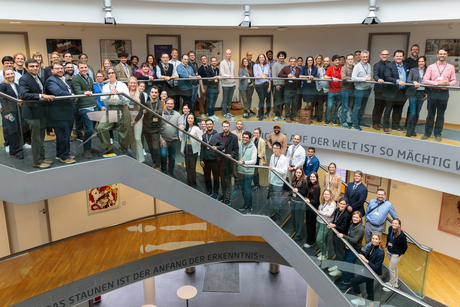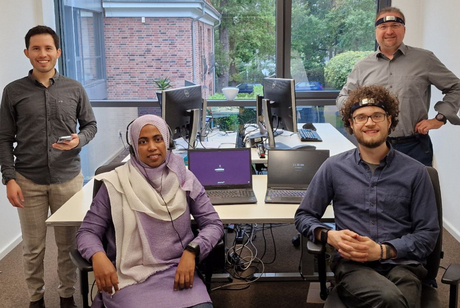The research cluster "Systems" at Hasso Plattner Institute for Digital Engineering (HPI) focuses on the controllability of complex, software-intensive systems and the processes of their development, operation, and application. The complexity of such systems manifests itself in the high number and heterogeneity of interacting data streams, hardware, and software components.
The "Systems" research cluster is home to the HPI research groups that are primarily associated with practical and technical computer science. We train computer scientists who can master the complexity of current and future hardware and software systems. Research and teaching address all aspects of such systems, from design and modeling to implementation, deployment, practical application, and long-term operation and maintenance.
We are proud to find the alumni of the "Systems" research cluster in established industries, with large users, in the thriving start-up scene, and in a university career as a professor.
Our Mission
The research cluster "Systems" unites HPI's core computer science disciplines and offers students and doctoral candidates an exciting and innovative environment for research and teaching. Our vision is to create a vibrant community of learners and teachers who collaborate in lectures, seminars, colloquia and scientific conferences to achieve excellence in the development and application of intelligent, user-friendly, interactive, distributed, service-based software systems.
Research School "Service-Oriented Systems Engineering"
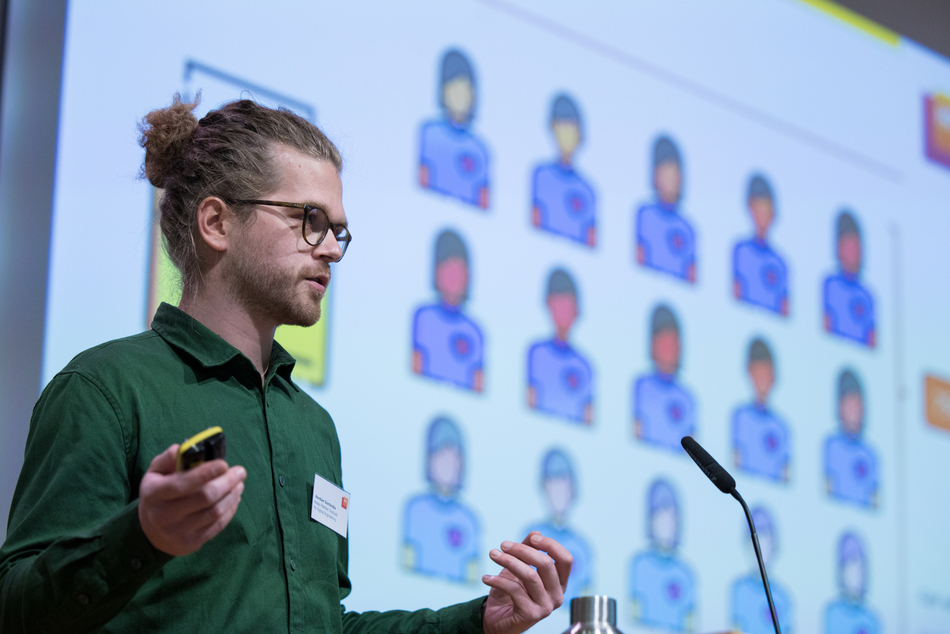
Modeled after the DFG Research Training Groups, the HPI Research Training Group "Service-Oriented Systems Engineering", founded in 2005, is operated in the "Systems" research cluster. With its courses and closed conferences, the research school offers 28 scholarship holders (four per professorship) a platform for research work on modeling, development, evaluation, optimization, and application of distributed service-oriented systems. The annual "Symposium on Future Trends in Service Computing" is the central event of the "Systems" research cluster. It will take place for the 20th time in 2025.
Research Focuses
- Modeling: Models, methods, and systems for modeling software products and processes (business processes, development processes, etc.) play a decisive role in software engineering. This applies to the system view of software-intensive systems as well as to the penetration of individual aspects.
- Programming techniques and software architectures: Software architecture is the subject of software engineering, which includes the theoretical foundations, means of expression, and architecture types for software-intensive systems. This is linked to the classification of components and relationship types, the derivation of model architectures for essential application domains, the prefabrication and use of component types, their management and composition, the evaluation of architecture variants, allocation, and replication. This subject area, based on knowledge of programming technology, is not just theoretical. It also includes special subsystems, components and frameworks that support certain product features with a reusable character, such as security in software-intensive systems. The practical application of knowledge is what makes this field so exciting and inspiring.
- Core software systems: Core software systems are subsystems that are largely application-independent and, together with hardware, form the basis for the development of software-intensive systems. These primarily include operating systems, database systems, communication systems, systems for human-machine communication, middleware, compilers and interpreters, knowledge processing systems, among others. A deep understanding of the component structure and the program interfaces is paramount for the effective functioning of these systems. In addition to pure software systems, there are also software-hardware systems. That is, computer systems that have been extended by microcontroller-based components (e.g., cameras, mobile devices, scanners, and machines for manufacturing).
- Processes: Building on the areas mentioned above, various process-related sub-areas in software engineering aim to create the organizational and technical framework conditions for software design, software management, and software quality assurance. Suitable processes are an indispensable prerequisite for the development of large software-intensive systems.
- System view and integration projects: An outstanding feature of the Digital Engineering Faculty degree programs is integrating all training areas into a holistic system view, including projects and software laboratories. We attach great importance to the practical implementation of our theoretical knowledge. This includes implementing innovative solutions and their application in real-life scenarios.
Become part of our cluster
If you are interested in a career in systems research, the research cluster “Systems” is where you can make a real difference. Our programs are designed to equip you with the theoretical foundations and practical skills necessary to tackle complex challenges in modern computer science. Join our cluster and be part of shaping the future of computer science!
Cluster Members
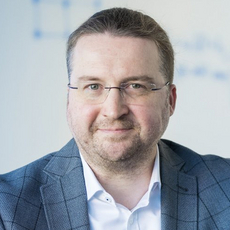
Prof. Dr. Bert Arnrich
Head of Digital Health - Connected Healthcare
Phone: +49 331 5509-4851
Mail: bert.arnrich@hpi.de
Research Focuses:
- health data
- transformation
- healthcare system
- sensor technology
- prevention
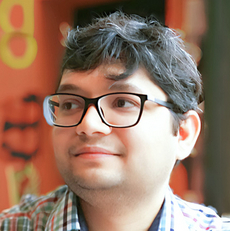
Prof. Dr. Vaibhav Bajpai
Head of Data-Intensive Internet Computing
Phone: +49 331 5509-3435
Mail: office-bajpai@hpi.de
Research Focuses:
- network protocols and architecture
- networked systems
- network infrastructure
- network security and privacy
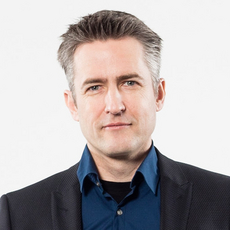
Prof. Dr. Patrick Baudisch
Head of Human Computer Interaction
Phone: +49 331 5509-551
Mail: patrick.baudisch@hpi.de
Research Focuses:
- interactive devices and systems
- haptics
- virtual reality
- fabrication technology
- uniting computer science and mechanical engineering

Prof. Dr. Jürgen Döllner
Head of Computer Graphics Systems
Phone: +49 331 5509-170
Mail: juergen.doellner@hpi.de
Research Focuses:
- visual computing
- AI for geometry and geodata
- software analytics
- geospatial analytics
- video analytics
- finance analytics
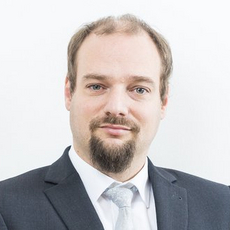
Prof. Dr. Christian Dörr
Head of Cybersecurity – Enterprise Security
Phone: +49 331 5509-4951
Mail: christian.doerr@hpi.de
Research Focuses:
- network security
- data security
- attack detection
- cyber security management
- digital sovereignty
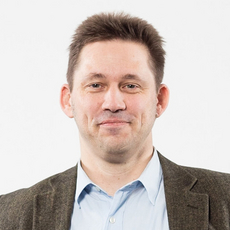
Prof. Dr. Holger Giese
Head of System Analysis and Modeling
Phone: +49 331 5509-366
Mail: holger.giese@hpi.de
Research Focuses:
- models for software-intensive systems
- adaptation policies
- model analysis and development
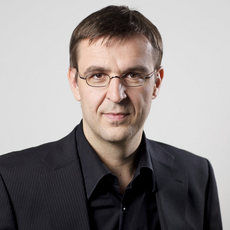
Prof. Dr. Robert Hirschfeld
Head of Software Architecture
Phone: +49 331 5509-220
Mail: robert.hirschfeld@hpi.de
Research Focuses:
- design and understanding of complex software systems
- programming languages
- analysis techniques
- execution environments
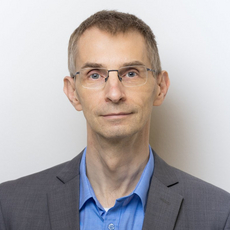
Prof. Dr. Holger Karl
Head of Internet Technologies and Softwarization
Phone: +49 331 5509-3490
Mail: holger.karl@hpi.de
Research Focuses:
- mobile and wireless networks
- data center networks
- zero-touch networking
- micro services
- latency reduction
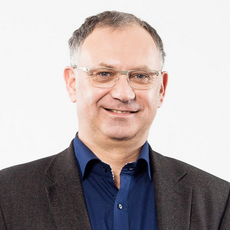
Prof. Dr. Andreas Polze
Head of Operating Systems and Middleware
Phone: +49 331 5509-220
Mail: andreas.polze@hpi.de
Research Focuses:
- large-scale, distributed component systems
- middleware
- embedded systems
- real-time capability
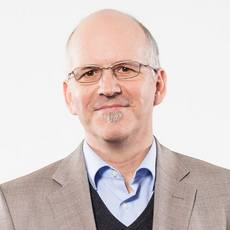
Prof. Dr. Mathias Weske
Head of Business Process Technology
Phone: +49 331 5509-191
Mail: mathias.weske@hpi.de
Research Focuses:
- process mining
- business process support
- process automation
- healthcare
- logistics
Research News
Last change: 08/11/2024, Mareike-Vic Schreiber





